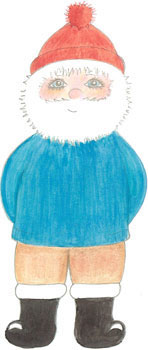
Salty Sam’s Fun Blog for Children
Number 460
The History of Shopping
Hello Everyone

There was a major family event last weekend.
My sister, who is Bill and Bob’s mum, left her job as a dental nurse on Friday evening.
She took all her things from her place of work and took them home in the car.
But was she sad?
No.
The next day she started a new life as a co-owner of a small business.
She started working in her new shop with her friends.
On Saturday, to launch the new shop they had an all-day party!
Posters had been put up all over town to announce the launch and when it was going to happen.
lt is a busy time of year to open a new shop. Reckitt and Stackett, the Rocky Bay builders had only just finished refurbishing it a week before it opened. The last jobs to be done were painting the walls, laying the floor and putting up some shelves.
There was plenty of stock put onto the shelves for people to buy for the forthcoming holiday season. The new owners had to work hard to get everything ready. Bill and Bob’s mum went there in the evenings to help.
Auntie Alice helped by making lots of party food to put on trays on the day before the party. Captain Jack and l put extra tables up in the store to put all the food and drink on.
We put up Christmas decorations and then lined up lots of bottles and glasses on the tables.
When we had finished, everything looked wonderful; but it took us all day to get finished as we went for a pub lunch – which look quite a long time out of our day.
Ooops! Sorry about that!
Captain Jack transported all the food in his car on Saturday morning from Rose Cottage to the store after Auntie Alice had put a few finishing touches to the food. lf you don’t fill pastry cases at the last minute, they will go soggy!
Bill and Bob donned bow ties and acted as mini waiters taking trays of finger food round to guests.
Even their dad left his studies and books for a while to come and join in the fun.
Lots of people from all over town came to the party. lt was a good thing that it lasted all day otherwise all the people that turned up would not have been able to fit into the shop at the same time!
There was a lot of music and laughter and also luckily, lots of sales.
When January comes, business is likely to be down but hopefully it will go up again when the summer visitors start arriving.
How are you getting on with your present shopping?
Have you finished it all?
Maybe you haven’t even started?
Have you started wrapping presents? Did you buy enough paper? Have you got enough cards for all your friends?
There is so much to think about at this time of year, isn’t there?
Did you go around the shops knowing exactly what you wanted to buy for people or did you wander about looking for inspiration?
Do you like going to the shops and seeing the colour and quality of something before you buy it and then bring it straight home with you – no waiting!
Maybe you thought the easiest thing would be to order online – and then the delivery man came when you were out.
Shopping online has become enormously popular in recent years.
There is so much more choice to look at, at a flick of a page and sometimes you can get items at a lower price than in the shops.
Of course, online shopping has not always been around, although you were able to buy goods from catalogue for hundreds of years (Blog Post 423) and there were also goods advertised in newspapers.
The invention of the steam trains meant that deliveries could be shipped all over the country much more quickly than being sent by stagecoach.
Before online shopping, you had to go to a town centre to buy something, or a local corner shop situated at the end of a row of houses.
The local shop had to be in a position where a delivery van could park and the driver could gain access into the back store room.
Nowadays, town centres are filling with coffee shops and cinemas and some are fading away altogether as shopping swaps to online retail.
ln ancient times, hunter-gatherer people hunted for meat and foraged for wild plants and berries. Everything was free; but not always easy to get.
Then when people started living in houses in villages thousands of years ago, they had stockades full of domesticated animals and vegetable gardens nearby.
The earliest archaeological evidence of man consuming dairy products was found from as early as 6,000 years ago. We know that early people were lactose intolerant – that means that only babies and not adults could drink milk. This suggests that raw milk would have been processed into some sort of fermented product like cheese or yoghurt.
Meat was smoked and salted to keep it preserved.
lnstead of buying things they just swapped things they had for things they wanted from other people – this is called bartering.
lt wasn’t until Roman Times that shops were set up for people to buy goods. These shops were facing onto a large square or rectangular space called a forum. Market stalls could be set up in the square.
There were counters at the front of the shops and the shop owner’s family lived at the back. The shops were shuttered up at night.
Shoppers took their own vessels to fill up with olive oil and things like that but probably still made cheese and bread at home if they wanted to. lf they were rich, they probably sent their slaves to do the shopping.
ln mediaeval times, market stalls were set up for people to buy goods like fish, shellfish and meat. Shops lined the market square or high street but there weren’t many permanent shops in those days. The shops had no windows, just archways you could walk through to get into the shop and these archways were closed up at night with shutters.
ln the markets there were also craftsmen like blacksmiths who made things out of metal, potters, shoemakers and barbers and people we don’t see too much today like bowyers and fletchers who made bows and arrows. For people living in isolated farms, it was a chance to get together with people in a community.
We have had street markets ever since. Some of them are completely under cover.
A lot of famous shops like Marks and Spencers started life as a market stall.
Some towns have street markets from Monday to Saturday; some are only on a Sunday. ln small towns market day might still be once a week.
Some fairs were very special and set up only once a year.
Some fairs for horse traders were set up too.
Farmers’ markets are very popular nowadays. These are places where farmers can sell fresh, quality produce directly to the public.
ln Victorian Times, delivery men came to houses every day. There were no fridges or freezers to keep food fresh and so fresh food was brought to houses regularly.
Flour could be stored and bakers would bake early in the morning and bring their wares around door to door in a basket to show the lady of the house a selection of baked goods.
People nowadays live in smaller social units that ever before, but having one person working in a kitchen was a time efficient way of feeding many people when you lived in a big, Victorian household.
Specialists would travel from village to village with their own cart. There would be tinkers who mended household items and sold things like new saucepans. There would be men who sharpened knives on a sharpening stone as a special service to householders.
Women stayed at home in those days unless they were working in factories or on the land and in that case they would probably bake bread at home in their own oven. They would make their own preserves like jam and pickles for their winter store cupboard.
Shops would have sold things like medicine in bottles, but a lot of goods were in big bins or jars or sacks and shopkeepers and assistants would have measured out goods into scales and put them into paper bags to be given to the shopper for them to take home.
The wooden shelves behind the counter would have reached up to the ceiling to use up all available space and the shop keeper would have needed a ladder to access some of his stock.
There would have been metal boxes and barrels in front of the counter as well. You could buy loose broken biscuits cheaply and take them home in a bag.
(lf you would like to visit a shop that has hardly changed since 1897, W Martyn’s tea and coffee specialist can be found in Muswell Hill, London.)
A lot of nice shops are going back to having wooden shelves and baskets to display their goods nowadays. This is what Bill and Bob’s mum wanted in her new shop too.
ln very small towns in the middle of nowhere, there was often a general store that sold everything you could want from fabric for making a dress to a new hammer if the head had fallen off your old one.
That is if you could not ‘make do and mend’ something that could be patched up or repaired rather than be replaced.
Nowadays, we live in a ‘throw away society’ where people often don’t even attempt to mend something that is broken – unless you are environmentally-conscious and like to reduce waste that is.
Cows were kept in Victorian cities to provide fresh milk and animals were brought into the city slaughter houses to provide fresh meat – before steam trains could bring food swiftly in from the countryside.
Deliveries of meat and milk and groceries were brought to the kitchen by various tradesmen every day to ensure fresh supplies.
This service continued far into the twentieth century and in recent years the habit has resurfaced with people either going to the supermarket, buying a trolley load of shopping and getting the shop to deliver it, or just ordering groceries online and getting them delivered to the front door in a huge plastic box at a time that is convenient to the house holder.
lt saves so much time for women who largely now go out to work all day. You could save maybe a quarter of a weekend by getting someone else to do your shopping – or a whole evening.
This time could obviously be better spent playing with your children!
Today, in some remote parts of the world, people only go to the shops once a year. They take their car and get loaded up with all the things they can’t produce themselves – like boots and coats and tools. There may be no large shops for miles around and maybe even no shops at all.
Shop windows came into being in the 1700s, and it was popular to have colourful awnings reaching out from over the top of them right into the mid 1900s. lt was at this time that the supermarket was invented. Shopping trolleys were invented in the 1930s.
You had to collect your own goods and take them to the checkout but there could still be counters where people would serve you with a block of cheese or fresh fish.
Barcodes came into being in the 1970s. Before then, all items had price labels stuck on them.
Shopping arcades started in the 1700s, and they were to be the forerunner of the modern shopping centres that were being built from the mid 1900s.
All sorts of ploys are used by shopkeepers to sell goods.
And people love spending money. lt makes them very happy.
Clothes shops entice you to walk between the clothing racks as you walk through in case a garment might catch your eye – by having hard floors to walk through the store but carpeted areas where the clothes are. People prefer to walk on carpet because it is softer.
Some supermarkets have trolleys that talk to you and tell you about bargains as you pass by them on the shelves.
Online shopping became popular at the beginning of the 21st century which is why shops are fading away and postmen are delivering fewer letters and more parcels.
Which reminds me – l think l should go now and do some present shopping of my own before the shops shut.
lf you like my blog, please support it by telling all your friends and followers about it.
Thank you!
And see you again next Fun Friday!
Love and kisses
Salty Sam

www.christina-sinclair.com


Bill and Bob’s Joke of the Week![]()
![]()
Bob: When do you know that you have trouble with debt?
Bill: Tell me…
Bob: When you can’t budge it.

Salty Sam © Christina Sinclair 2015
Unauthorized use and/or duplication of material from this blog without express and written permission from this blog’s author and owner is strictly prohibited.
Links may be used to www.christina-sinclair.com

Picture Gallery
 Roman market
Roman market
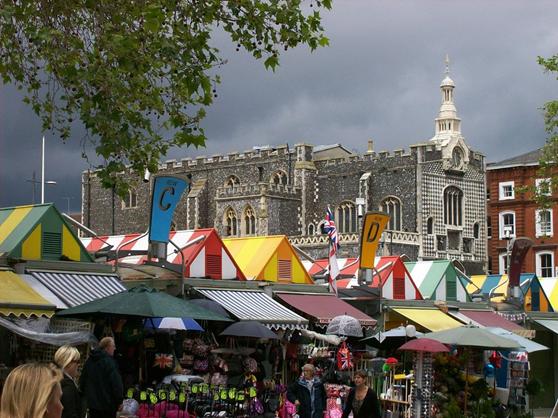 Norwich market square
Norwich market square
 Small panes of glass could be held in place by strips of wood
Small panes of glass could be held in place by strips of wood
in order to make large shop windows
 Scrooge and Tiny Tim going shopping in Victorian Times
Scrooge and Tiny Tim going shopping in Victorian Times
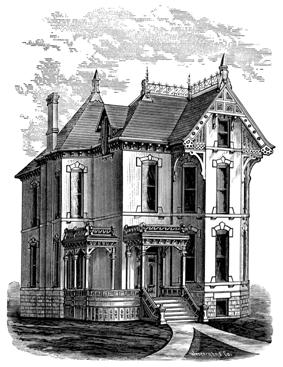 A Victorian house
A Victorian house
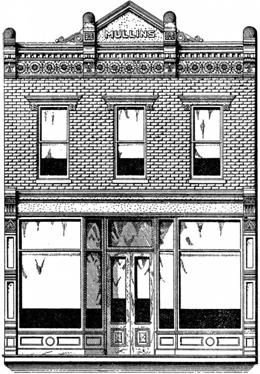 A Victorian shop
A Victorian shop
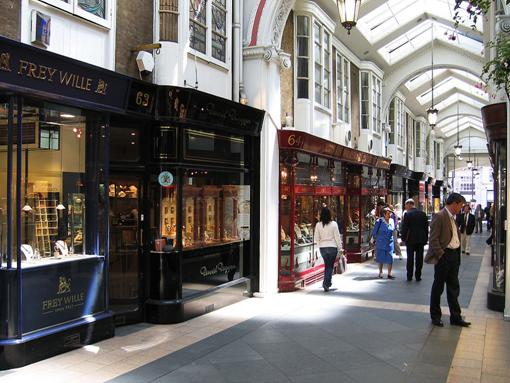 The Burlington Arcade built 1818-1819
The Burlington Arcade built 1818-1819
 Christmas gifts from 1920
Christmas gifts from 1920
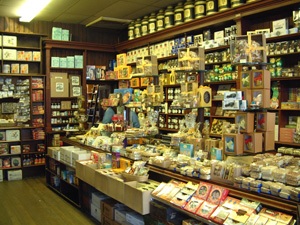 W Martyn in Muswell Hill
W Martyn in Muswell Hill
 Some people have no shops nearby
Some people have no shops nearby


 THE SALTY SAM NEWS DESK
THE SALTY SAM NEWS DESK

This week Emily, Henry, Bill, Bob and I went for a walk along the promenade at Sandy Cove.
It was quite sad to see all the booths and kiosks being shut up for the winter.

We only have one building firm in Rocky Bay and that is Reckitt and Stackett.
They have to be booked well in advance when a job needs doing and it is a busy time for them doing last minute repairs to properties on the sea front before everything is shut up for the winter.
The winter storms will be rolling in soon and everything has to be secured and boarded up well to cope with the buffeting of the wind and the rain and maybe even some snow as well!

If anything needs to be freshly painted, it is usually done in the springtime when the air is dry and the sun not too hot.
Everything has to be ready for when the first summer visitors start rolling in.
But for now, the whole promenade looks like a ghost town. 🙁
So then we wandered off inland where the wind was less strong and the air was warmer.
We ended up in the town square – and our spirits were lifted!
There was a Christmas Fayre open! 😀
Yay!

There were lots of colourful stalls selling toys and unusual presents and lots of people from out of town coming especially to take a look.
Hopefully, a lot of them will wander into my sister’s shop too.
There was luxury food in pretty jars and boxes and lots and lots of sweet treats like chocolates and gingerbread.
There were lovely decorations and lights.
There was even hot food you could buy to eat and warm yourself up.
There were lots of hot drinks too.

We bought some decorations and went straight round to Auntie Alice to put them on her tree.
We always help her put up her tree. It is one of our favourite jobs of the year to do!

*********************
TO ADVERTISE ON THIS BLOG
PLEASE CONTACT:
christina.sinclair.ads@aol.co.uk
*********************

 Quick Quiz
Quick Quiz
Can you find these shopping words?
- s_o_p_n_ m_l_
- s_o_p_n_ p_e_i_c_
- s_o_p_n_ c_n_r_
- e_p_r_u_
- d_p_r_m_n_ s_o_e
- s_p_r_a_k_t
- s_a_l
- k_o_k
- m_n_e_
- c_t_l_g_e




lt’s the Weekend!

HOW TO MAKE PRESENT LABELS
Here are some really quick labels to make.
Use things around the house to draw around to make shapes to colour in or draw inside.
You could use coloured card or card from a food box and stick wrapping paper to the coloured side before you cut out the shapes.

If you have piles of presents to take to different places like school, your grandparents’ house, your neighbours’ house and so on, you could have all the same design on each pile so that you can quickly see which pile is which – be careful to check you don’t get anything muddled up so that no presents get left behind.
This would be a great help to your mum because she has so many things to get ready this time of year.

Please note that the material on this blog is for personal use and for use in classrooms only.
It is a copyright infringement and, therefore, illegal under international law to sell items made with these patterns.
Use of the toys and projects is at your own risk.
©Christina Sinclair Designs 2015


Quick Quiz Answers
- shopping mall – enclosed space
- shopping precinct – outside cluster of shops
- shopping centre
- emporium – old word for a department store
- department store
- supermarket
- stall
- kiosk
- monger – means seller of a specific kind of thing
- catalogue



